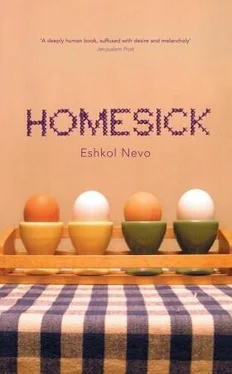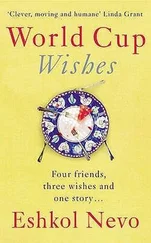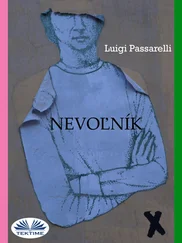Eshkol Nevo - Homesick
Здесь есть возможность читать онлайн «Eshkol Nevo - Homesick» весь текст электронной книги совершенно бесплатно (целиком полную версию без сокращений). В некоторых случаях можно слушать аудио, скачать через торрент в формате fb2 и присутствует краткое содержание. Год выпуска: 0101, ISBN: 0101, Издательство: Random House, Жанр: Современная проза, на английском языке. Описание произведения, (предисловие) а так же отзывы посетителей доступны на портале библиотеки ЛибКат.
- Название:Homesick
- Автор:
- Издательство:Random House
- Жанр:
- Год:0101
- ISBN:9781448180370
- Рейтинг книги:5 / 5. Голосов: 1
-
Избранное:Добавить в избранное
- Отзывы:
-
Ваша оценка:
- 100
- 1
- 2
- 3
- 4
- 5
Homesick: краткое содержание, описание и аннотация
Предлагаем к чтению аннотацию, описание, краткое содержание или предисловие (зависит от того, что написал сам автор книги «Homesick»). Если вы не нашли необходимую информацию о книге — напишите в комментариях, мы постараемся отыскать её.
Homesick
Homesick — читать онлайн бесплатно полную книгу (весь текст) целиком
Ниже представлен текст книги, разбитый по страницам. Система сохранения места последней прочитанной страницы, позволяет с удобством читать онлайн бесплатно книгу «Homesick», без необходимости каждый раз заново искать на чём Вы остановились. Поставьте закладку, и сможете в любой момент перейти на страницу, на которой закончили чтение.
Интервал:
Закладка:
After I took pictures outside the club, we went inside with our heads bent so as not to bump into the low ceiling. I’d already been to the Pargod a few times (in my freshman year, I saw the Brera Tivit group three times, each show more thrilling than the others), but still, even this time, going into the club was a surprise: This is the whole deal? This is the Pargod? A small, cramped space with ten rows of plastic chairs, a narrow aisle, damp walls. If it had stalactites and stalagmites, it could officially be called a cave. While Amir was buying tickets from the club owner, I studied his face. For the first time in months, the light was back. Those visits to the Helping Hand Club, the pressure of his studies, and something else, something he doesn’t talk about, had made him seem stooped. Three grey hairs had popped out in front, about five years too early. His twitch was twitching again. And the deep furrow on the right side of his face seemed to be getting deeper. But that night at the Pargod, everything was reversed. He smiled at everyone, hugged David’s mother in excitement, danced lightly as we walked to our seats and kissed me on the neck once a minute. I don’t believe it, he said and pointed at the lit stage where all the instruments were, I just don’t believe it. He drummed on his knee and mine, as if they were bongo drums, to the rhythm of the pre-show music, and I found myself again, for the millionth time, amazed by his ability to be really happy, with his whole heart, for other people. Without a drop of jealousy. Without a smidgen of egoism. He was just happy for David. So happy that when Licorice came hesitantly on to the stage, he leaped out of his seat as if they were nothing less than U2 and he dragged the whole audience in that little cubbyhole along with him into a cheering session — including David’s mother, who was trilling along with the cheering crowd — that went on for two straight minutes.
The show itself started with feedback — grating guitar squeals that startled the audience and caused a wave of embarrassed muttering. That’s what happens when your soundman is a teenager. But it got better. Licorice got more confident with each song, David’s voice opened up, the bass blossomed, the drummer came out of his hiding place behind the cymbals and reinforced David’s voice with his own soft, almost feminine voice, the audience of fans applauded during the choruses and lit their Zippos during the ballads, and the bald critic from the local newspaper — everyone knew who he was, but they tried not to show it — nodded at least twice in satisfaction. Every once in a while, through the screen of distortion, you could make out a few lines of the songs, such as ‘Love is a jittery DJ’, or ‘The dam on the I river has collapsed’, making me think that they should consider handing out lyrics during the performance, not just with the CDs. I had my usual attack of jealousy of musicians because they can create together and help each other create individually, because they can signal each other with a look, with the strum of a guitar, that it’s time to end the song, while photographers have to make all their decisions alone and make mistakes, mistakes all the time.
Towards the end of the show, I even managed to forget that I was at the performance of someone I know. I closed my eyes and just let the music fuse with my body and take me off on a trip. During one instrumental passage, I was on a yellow hill in the Negev leading a herd of red goats. In another, stormier passage, I found myself in the middle of a brightly coloured festival in a village from One Hundred Years of Solitude , and Modi appeared in front of me and handed me a purple cocktail.
After the last song — a weird reggae version of Benzine’s ‘Freedom is completely alone’ — the audience naturally called for an encore. Licorice didn’t bother with the usual ritual of walking off and then walking back on to the stage at the audience’s insistence because they didn’t exactly have anywhere to walk off to, so they stayed on the low stage. The guitarist exchanged his electric guitar for an acoustic one. David took the microphone in his hand and spoke. His voice was hoarse from so much singing. His forehead glistened with sweat from the heat of the spotlights. I remember almost every word. ‘I want to thank everyone who came tonight. I won’t say you were a wonderful audience, because that’s bullshit. You were a loving audience. I only hope we have audiences like you at all our performances. (Wild applause.) I want to give special thanks to three people without whom I wouldn’t be here today. Yoni, Matan and Amir (here, Amir squeezed my thigh). Without their love and affection, I wouldn’t have survived the last few weeks and I wouldn’t be standing here now. I dedicate this next song, “Spread your Grace”, to them. I think that this is a time when a little grace wouldn’t hurt any of us.’
In the second photo of the show, David and Amir are hugging. After ‘Spread’ — I’d heard its hymn-like chorus many times in our living room, so I could join in — the lights were turned on and the audience went up to congratulate the members of the group. There was a short line, like the kind you have at weddings after the ceremony, and I waited with my flash for the minute that Amir came up to David, moving around constantly to find a place where no one could come between me and them. The picture itself shows David’s face over Amir’s shoulder. His eyes are closed, his eyebrows a little wild. His lips are stretched almost into a smile. Amir is slightly bent, his shirt pulled up, exposing a little bit of his back. His right hand is reaching out, pulling David to him for a manly hug. In the background, some guy is making a speech to a woman — the fabric of her trousers is the kind older women wear, so she must have been David’s mother — and his mane of hair spills out of the frame. The kid who did the sound is behind them, bending to pick up a cable. And all the other details are swallowed up in darkness. In the black hole. Not the photograph of the century in terms of light, but I still like it because of David’s half-smile and because if you bring it close to your face, you can actually smell that smell, the one that exists only at shows like that: a combination of cigarettes, sweat and excitement. On the way home, we tried to guess which of Licorice’s songs would be a hit on the radio. Amir remembered other details from the performance and recreated them with shining eyes. Did you notice how their bottles of water stayed full? They didn’t drink a drop. Did you see the drummer, the power he had? David says that in real life, he’s a pussycat. And the critic, did you see him? He went up to David after the show and said thank you. Thank you is good, right?
Of course thank you is good.
Amir took the turns going out of Jerusalem so fast that I was afraid his enthusiasm would propel us straight into the Mevasseret wadi, but I didn’t say anything. I enjoyed seeing him that way so much — excited, elated, alive — that I didn’t want to spoil it.
Back then I still thought I had control over what gets spoiled and what doesn’t.
*
You know, ya ibni , there’s something else I didn’t tell you, Mother says and closes her eyes. The rusty old key to that house is sitting between us on the small stool with the gold edging. She took it off her neck for the first time in forty-eight years — she never even took it off in the shower — but I still don’t take it. I’ve already told her about the house, and she didn’t yell. I’ve already described to her what it looks like from every angle, and she didn’t gesture with her hand for me to leave. Just the opposite. She added more signs for me to look for — there are two fig trees in front, a pomegranate tree at the back — so I’d be sure that was the place. But to reach out and take the key — I didn’t have the courage.
Читать дальшеИнтервал:
Закладка:
Похожие книги на «Homesick»
Представляем Вашему вниманию похожие книги на «Homesick» списком для выбора. Мы отобрали схожую по названию и смыслу литературу в надежде предоставить читателям больше вариантов отыскать новые, интересные, ещё непрочитанные произведения.
Обсуждение, отзывы о книге «Homesick» и просто собственные мнения читателей. Оставьте ваши комментарии, напишите, что Вы думаете о произведении, его смысле или главных героях. Укажите что конкретно понравилось, а что нет, и почему Вы так считаете.












